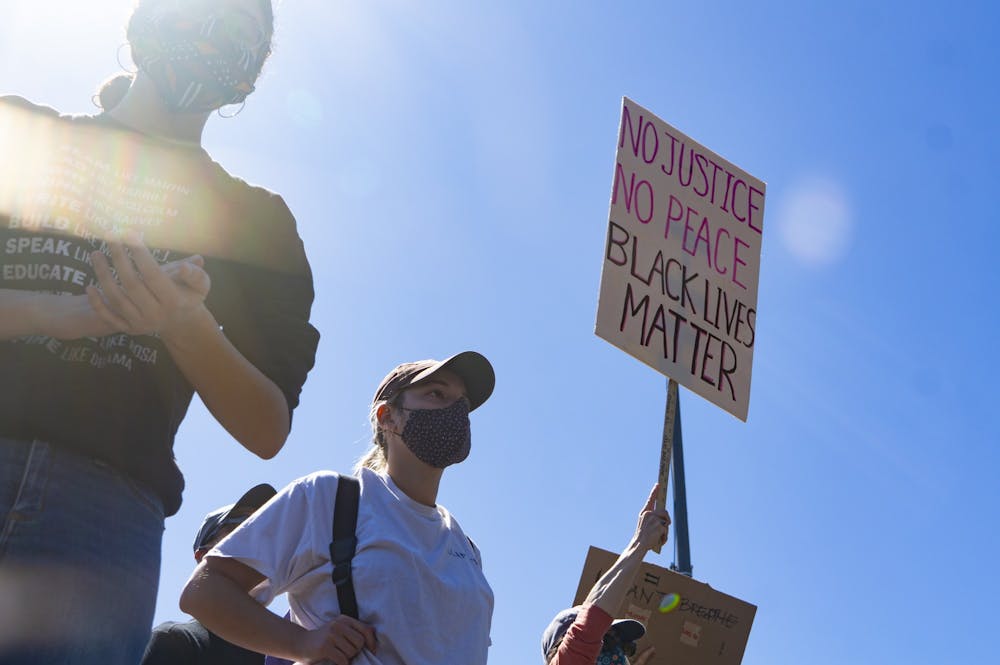For decades, members of the UNC community have been involved in protests and social activism efforts, from the Civil Rights Movement and anti-Vietnam War movement to the anti-Apartheid movement and Silent Sam’s removal.
In the weeks following the killing of George Floyd, several student groups, including UNC Black Congress and the Black Student Movement, have been involved in organizing protests against police brutality and systemic racism across the Triangle.
However, given UNC’s safety guidelines for the fall due to the COVID-19 pandemic, questions remain as to how protesting efforts will be carried out on the University’s campus during the upcoming semester.
In an email statement, UNC Media Relations did not address how protesting may change on campus, but offered guidance on healthy and safety community standards.
The University states on the Carolina Together website that the best strategy to reduce COVID-19 transmission is to practice physical distancing and avoid large gatherings and crowded areas. The website also says that individuals, students and community groups should limit in-person events and social gatherings to the number of people specified by the guidance of local, state and national officials.
“Outdoors, the best strategy is to put at least 6 feet of distance between yourself and others whenever possible,” the website states. “If 6 feet distancing is not possible, it is essential that all individuals within a group of people be appropriately masked.”
In the email statement, a University spokesperson also said that as a public university, “Carolina protects free speech and the right to peacefully protest.”
Irena Como, senior staff attorney at the ACLU of North Carolina, reiterated that students have the right to protest on a public university’s campus.
“In general, (universities) can’t suppress people’s free speech rights, including their right to protest,” said Como. “As long as the protests are peaceful, campus police should not interfere with them at all.”




